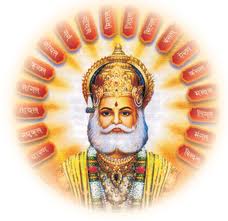 W
WAgrawal is a Bania community found throughout northern, central and western India, mainly in the states of Rajasthan, Haryana, Punjab, Chandigarh, Himachal Pradesh, Uttarakhand, Delhi, Chhattisgarh, Gujarat and Uttar Pradesh. Members of the Agarwal community were also found in what are now the Pakistani provinces of Punjab and Sindh, though at the time of the partition of India, most of them migrated across the newly created border to independent India. Most Agarwals follow the Vaishnava denomination of Hinduism, though some have converted to Jainism. Agrawals are divided into eighteen exogamous clans (gotras). Many members of this community use their caste name Agarwal as their surname, while others use that of their gotras.
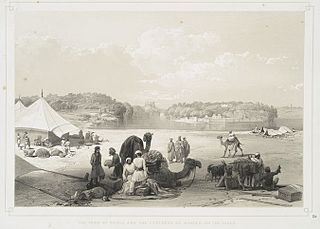 W
WThe Arora is a community originating from the Punjab and Sindh region of India and Pakistan. The name is derived from their native place Aror and the community comprises both Hindus and Sikhs.
 W
WBaig, also commonly spelled Beigh, Beg, Bek, Bey, Baeg or Begh was a title which is today used as a name to identify lineage. It means Chief or Commander and is common in Turkey, Iran, the Caucasus, Central Asia, South Asia and Southeastern Europe and among their respective diaspora.
 W
WBarot is an Indian caste native to Gujarat and Rajasthan. They traditionally worked as genealogists and mythographers.
 W
WBegum is a royal and aristocratic title from Central and South Asia. It is the feminine equivalent of the title baig or bey, which in Turkic languages means "higher official". It usually refers to the wife or daughter of a beg. The related form begzada also occurs.
 W
WBhat is a surname in the Indian subcontinent. Bhat and Bhatt are shortened rendition of Bhatta.
 W
WBhat is a surname in the Indian subcontinent. Bhat and Bhatt are shortened rendition of Bhatta.
 W
WBishnoi is a Hindu community found in the Western Thar Desert and northern states of India. They follow a set of 29 principles/commandments given by Guru Jambheshwar (1451-1536). They are a sub-sect of the Vaishnav Sampraday. As of 2019, there are an estimated 10,00,000 followers of Bishnoi Panth residing in north and central India. Shree Guru Jambheshwar founded the sect at Samrathal Dhora in 1485 and his teachings, comprising 120 shabads, are known as Shabadwani. He preached for the next 51 years, travelling across India. The preaching of Guru Jambhoji inspires his followers as well as the environmental protectors. Bishnoi Community consist of people from all the North Indian castes but most of the Bishnois are from Jat and Rajput castes of Rajasthan.
 W
WChakyar is an intermediate priestly caste coming under the Ambalavasi community of Hindus in the Kerala state of India. The women in this caste are called Illotammas.
 W
WChandra, also known as Soma, is the Hindu god of the Moon, and is associated with the night, plants and vegetation. He is one of the Navagraha and Dikpala.
 W
WChettiar is a title used by many traders, weaving, agricultural and land owning castes in South India, especially in the states of Andhra Pradesh, Karnataka, Kerala, Tamil Nadu and Telangana.
 W
WDabral, is a surname found in Hindu community of Garhwali Gangari Brahmins primarily living in the Garhwal region of Uttarakhand state of India. Member of this community are also found in Kumaon region.
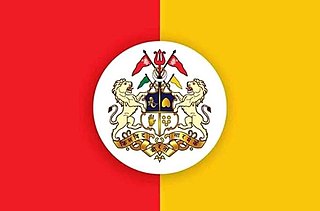 W
WDebbarma
 W
WThe Dogras or Dogra people, are an Indo-Aryan ethno-linguistic group in India and Pakistan consisting of the Dogri language speakers. They live predominantly in the Jammu region of Jammu and Kashmir, and in adjoining areas of Punjab, Himachal Pradesh, and northeastern Pakistan.
 W
WThe Gaekwads of Baroda are a Hindu dynasty of the former Maratha Empire and its subsequent Princely States. A dynasty belonging to this clan ruled the princely state of Baroda in western India from the early 18th century until 1947. The ruling prince was known as the Maharaja Gaekwad of Baroda. With the city of Baroda (Vadodara) as its capital, during the British Raj its relations with the British were managed by the Baroda Residency. It was one of the largest and wealthiest princely states existing alongside British India, with wealth coming from the lucrative cotton business as well as rice, wheat and sugar production.
 W
WHavyaka Brahmins are the Hindu Pancha Dravida Vedic Brahmins from the Indian state of Karnataka. Havyakas profess the Advaita philosophy propounded by Adi Shankaracharya. Most Havyakas can trace their immediate ancestry to either Sirsi, Uttara Kannada, Shivamogga, Udupi, Dakshina Kannada or Kodagu districts of Karnataka and Kasaragod district of Kerala.
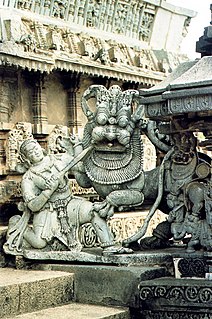 W
WHoysala Karnataka Brahmins are a community of Kannada-speaking Smartha Brahmins. This sect of Brahmins are spread over the Southern Districts of the Indian state of Karnataka.
 W
WIyengars are an ethnoreligious group of Tamil-speaking Hindu Brahmins, whose members follow Sri Vaishnavism and the Visishtadvaita philosophy propounded by Ramanuja. Found mostly in the Indian states of Tamil Nadu, Karnataka, and Andhra Pradesh, Iyengars are divided into two sects, the Vadakalai and the Thenkalai. As with other Brahmin communities, they are also classified based on their gotra, or patrilineal descent, and the Veda they follow. Iyengars belong to the Pancha Dravida Brahmana sub-classification of Brahmins.
 W
WIyer is a caste of Hindu Brahmin communities of Tamil origin. Most Iyers are followers of the Advaita philosophy propounded by Adi Shankara and adhere to Smarta tradition. This is in contrast to the Iyengar caste, who are Vaishnavite Hindus. The majority of Iyers reside in Tamil Nadu, India.
 W
WThe Kollanoor, Kollanore or Kollannur is a Saint Thomas Syrian Christian and Nambudiri Brahmin family name. They originated in and around Palayoor, a village near Chavakkad in Thrissur District in Kerala, India and many migrated to Kunnamkulam.
 W
WKuchchal or Kuchchhal or Kuchhal is an Indian clan of the Rajvanshi and Agrawal community. Agrasen established 18 Gotras for each of his 18 Ganadhipati based on the names of their Guru and divided his empire among them.
 W
WKumar is a title, given name, middle name, or a family name found in the Indian subcontinent, mainly in India, Bangladesh, Sri Lanka, and Nepal, though not specific to any religion, ethnicity, or caste. It is a generic title which variously means prince, son, boy, or chaste. It is the 11th most common family name in the world as of August 2019.
 W
WMahārāja ; is a Sanskrit title for a "great ruler", "great king" or "high king". A few ruled mighty states informally called empires, including ruler raja Sri Gupta, founder of the ancient Indian Gupta Empire and Chandragupta Maurya. 'Title inflation' soon led to most being rather mediocre or even petty in real power, which led to compound titles being used in an attempt to distinguish some among their ranks.
 W
WThe Meena is a tribe found mainly in the Rajasthan and Madhya Pradesh regions of India. Its name is also transliterated as Meenanda or Mina. The Meenas claim connection to the Matsya avatar of Vishnu, and the ancient Matsya Kingdom.
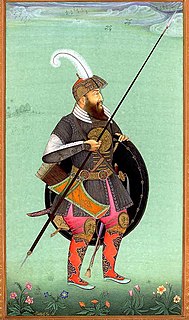 W
WMian or Miyan is a royal title of the Indian subcontinent, also sometimes used as a surname. Begum or Beygum, is used to describe the wife of a Mian. It is used by several monarchs of Indian states.
 W
WMunshi is a Persian word, originally used for a contractor, writer, or secretary, and later used in the Mughal Empire and India for native language teachers, teachers of various subjects, especially administrative principles, religious texts, science, and philosophy and were also secretaries and translators employed by Europeans.
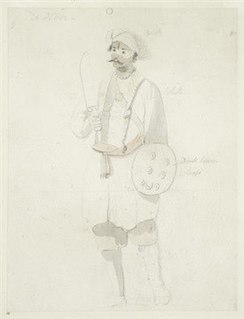 W
WThe Nair, also known as Nayar, are a group of Indian Hindu castes, described by anthropologist Kathleen Gough as "not a unitary group but a named category of castes". The Nair include several castes and many subdivisions, not all of whom historically bore the name 'Nair'. These people lived, and continue to live, in the area which is now the Indian state of Kerala. Their internal caste behaviours and systems are markedly different between the people in the northern and southern sections of the area, although there is not very much reliable information on those inhabiting the north.
 W
WPerumal, may refers to,Perumal, south Indian god Perumal/Perumal Atikal/Permati, medieval Indian royal title of Western Ganga dynasty Sripurusha Rajamalla Nitimarga Pandya dynasty Maran Chatayan Chola dynasty Parantaka Pallava dynasty Paramesvara Varma II of Kanchi Kodungallur/Western Chera dynasty Rama "Rajasekhara" Sthanu Ravi Bhaskara Ravi "Manukuladitya" Rama "Kulasekhara"
 W
WPhulkian Misl is a Sikh misl of named after Choudhary Phul Sidhu. Maharaja Ala Singh, Maharaja Amar Singh, Raja Sahib Singh, Raja Gajpat Singh, Maharaja Hamir Singh all are rulers of Phulkian misl. It was a Sidhu Jat misl. The area of this misl is in region Patiala, Nabha, Jind.
 W
WPillai, meaning Prince, is a title of nobility which can either refer to a ruling chief, members of the nobility, or junior princes of the royal family historically ranked immediately below the king. The oldest lineages of Pillais include not only Kshatriyas but also brahmins who took up the sword. From the early modern period, the title also came to be bestowed upon Savarna subjects by the King of Travancore for services military or political, most of whom were of Nair origin.
 W
WPūjari is a designation given to a Hindu temple priest who performs pūja. The word comes from the Sanskrit word "पूजा" meaning worship. They are responsible for performing temple rituals, including pūjā and aarti. Pujari are mainly drawn from the Hindu Brahmin.
 W
WPuntambekar is an Indian surname. It is found amongst Marathi speaking Deshastha Brahmin and Karhade Brahmin communities of Maharashtra. Marathi surnames are created by adding the suffix -kar to the family's town of origin; therefore, people originating from the town of Puntamba take the name Puntambekar.
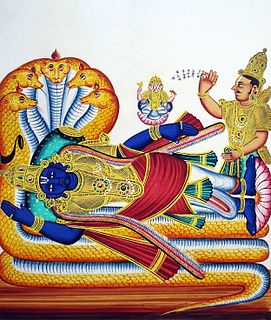 W
WRanganathan is a South Indian name. It is derived from the Sanskrit name Ranganatha, which is the name of the Hindu god Vishnu, as depicted resting on the nāga Shesha. The name derives from the Sanskrit words ranga, meaning "place of assembly," and nath, meaning "protector," and thus by extension the name literally means "protector of the place of assembly."
 W
WSeerla is one of the surnames in the Kapu community. Seerla families reside in the West Godavari District and surrounding places.